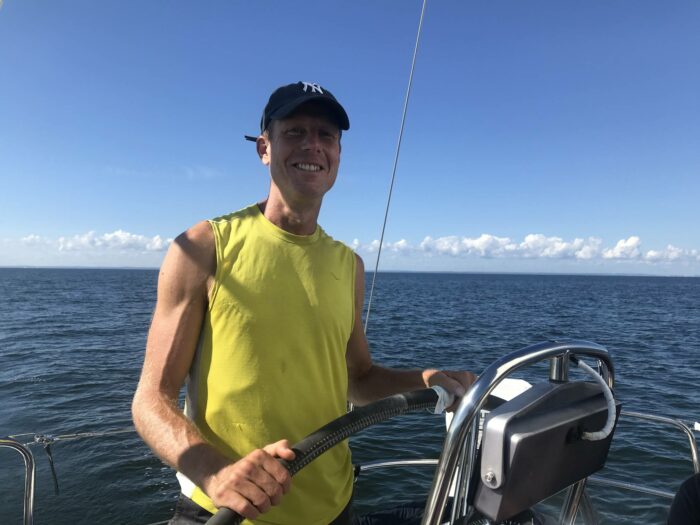Reflections on my first deep-sea sailing trip, seeing many stars and almost no fish
I had to comment on two remarkable sights from the deep-sea sailing lesson I posted pictures from yesterday.

The first was when I came back on deck after the sun had set all the way. I saw countless stars for the first time in years. From Manhattan, on a good night I can see a dozen stars through the chemical pollution lit from below by light pollution. Don’t get me started on sound pollution in New York.
I had forgotten what I had missed: unspeakable beauty that was once the birthright of everyone who could see. Today half of humanity lives in cities. I don’t know how many are polluted more than New York, but I think it’s safe to say that billions of people never see many stars. I tried taking a picture, but one, it didn’t come out and two, I hope most of you know what the night sky looks like.
From the boat I saw the Milky Way. The first thing I saw was the Big Dipper. I didn’t even think about it. I just looked up and knew from decades of childhood the Big Dipper. Then the North Star. Then Orion. I felt for a moment like a child again. It was wonderful.
With my background in astrophysics, I started thinking about eclipses and how to predict them. I wondered how people calculated them assuming the Earth was flat and the center of the universe compared with it being a spinning sphere going around the Sun. I found it beautiful to think about. Also how to navigate with or without a clock.
I thought about what kept me from seeing the stars: the causes of the chemical and light pollution. I kept thinking: Times Square and flying around at whim is a bad trade. I know the value of commerce and intercontinental travel. I know if we never see the stars how easy they are to miss. Those things are worth a lot, but less than being able to see stars every clear night.
The second was the one time over several days that we saw fish swimming near the surface. Podcast guest J. B. MacKinnon wrote of captains’ logs before steam boats that wrote of ships crossing the Atlantic stopped in the middle of the ocean because the fish were so dense. The places in Long Island and Rhode Island in which we started and ended this trip had whaling and fishing backgrounds. Whales and fish used to be plentiful. Now they’re gone.
It takes so little for nature to rebound. That it doesn’t rebound but continues to decline reinforces that we aren’t just watching it happen. We’re pummeling nature. That’s a losing strategy.
Read my weekly newsletter

On initiative, leadership, the environment, and burpees